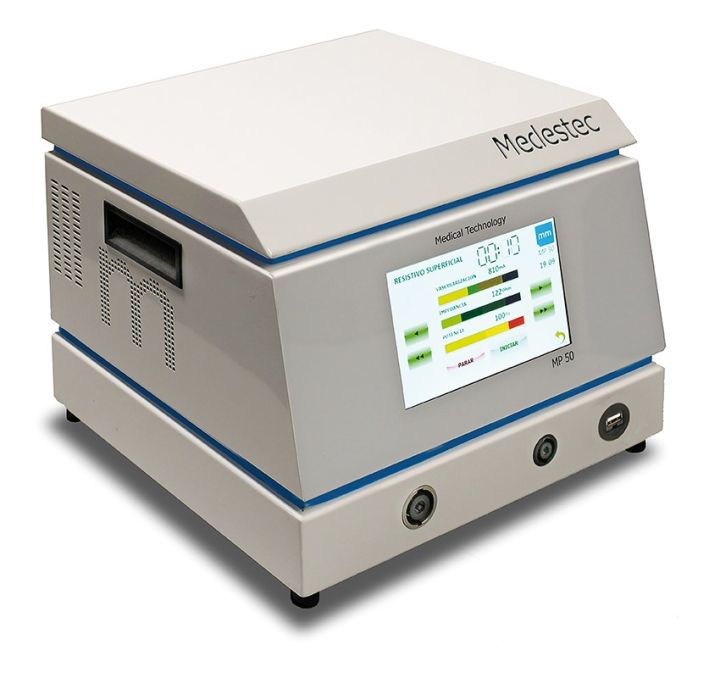FAQ
Medical Aesthetic Radiofrequency
In our Medical Aesthetic Radiofrequency FAQ, you will find answers to all your essential questions about Medical Aesthetic Facial and Body Radiofrequency treatments. From the number of sessions required to the expected results, we cover all the necessary information to help you make an informed decision about this safe and effective treatment.
If you have any additional doubts or concerns, please feel free to contact me directly. As a professional in the field of aesthetics, I am here to provide you with the support and guidance you need to achieve your desired results
I use Facial Radiofrequency to improve the appearance of your face. The electromagnetic energy stimulates collagen and elastin production, which reduces wrinkles and fine lines and improves skin elasticity. It can also improve skin texture and reduce the appearance of pores.
Similarly, I use medical aesthetic radiofrequency for your body. The non-invasive technique uses high-frequency radio waves to generate controlled heating that stimulates collagen and elastin production, reducing cellulite and flabbiness while improving your skin’s appearance.
The benefits of medical aesthetic radiofrequency are numerous, including firmer, smoother, and more radiant skin. This painless and safe treatment can be used on any part of your body, making it a great option for those who want to improve their appearance without invasive procedures. As your esthetician, I’m available to answer any questions and help you choose the right treatment.
As an esthetician, I use radiofrequency to heat the deep layers of the skin without damaging the top layer. The electromagnetic energy penetrates the skin, stimulating the production of collagen and elastin. These proteins are essential for skin elasticity and firmness. Additionally, radiofrequency boosts blood circulation and oxygenation of the skin, resulting in a healthy and radiant appearance.
As an esthetician, I can confirm that both facial and body radiofrequency provide several benefits for the skin, including:
- Stimulating the production of collagen and elastin, which firms and tightens the skin, enhancing its appearance and texture.
- Reducing the appearance of wrinkles and fine lines by stimulating collagen and elastin production.
- Treating cellulite and localized fat by promoting blood circulation and eliminating toxins from the body.
- Improving blood circulation and oxygenation of the skin, helping to maintain a healthy and radiant appearance.
To achieve the best outcome, I recommend undergoing several radiofrequency sessions, which varies depending on your objective and skin characteristics. Typically, a minimum of 6 to 10 sessions is required.
The sessions are spaced out between 1 to 4 weeks, depending on the area being treated and skin type. After the first few sessions, you may notice a considerable improvement in your skin’s appearance. However, it’s crucial to complete the suggested number of sessions to achieve long-lasting results.
As a trained professional, I ensure that each radiofrequency session is safe and effective. The duration of the session will depend on the area of the body being treated. Facial radiofrequency sessions usually last between 30 to 60 minutes, while body sessions can last between 60 to 90 minutes.
Although a warm sensation may be felt on the skin during the session, radiofrequency is not a painful treatment. Some people may experience slight tingling or itching of the skin, but this is normal and should not cause any discomfort.
If any discomfort is felt during the session, the individual should inform the practitioner performing the treatment. This allows the intensity of the electromagnetic energy to be adjusted to suit the individual’s needs.
Radiofrequency treatment is safe and non-invasive, with minimal and temporary side effects. After treatment, some people may experience redness, swelling or tenderness of the skin, but these symptoms disappear within a few hours.
To minimize the risk of side effects, individuals must follow the practitioner’s instructions during treatment. The practitioner performing the treatment should be informed immediately if any discomfort is experienced. This allows the intensity of the electromagnetic energy to be adjusted to suit the individual’s needs.
Radiofrequency is generally a safe and effective treatment for most people. However, individuals with certain medical conditions, such as heart disease, blood clotting disorders, or decompensated diabetes, should avoid it.
Additionally, pregnant or breastfeeding women should refrain from RF treatment as there is a lack of sufficient studies to evaluate its safety during these periods.
It is essential to consult with a trained professional before undergoing any RF treatment to determine its appropriateness for each individual.
